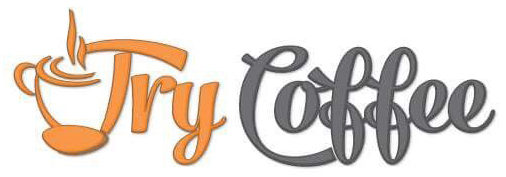Table of Contents
What is Coffee?
Coffee beans are seeds of coffee cherries. These coffee cherries grow on coffee trees. Coffee trees are evergreens but are considered to be a dry land crop. Because they don’t need much water or humidity to thrive. The coffee tree has continued to produce coffee cherries for about 35 years. So coffee trees are typically only cultivated for about 20 years to increase coffee bean yields.
Caffeine in Coffee Beans
Yes, coffee beans do have caffeine in them. That’s why you should take coffee as per directions on coffee packaging to avoid an overdose of caffeine. Too much caffeine is not good for your health.
How Much Caffeine Is in Coffee Beans?
Caffeine is present in coffee beans at about 1.5% to 2%. Roasted coffee beans will lose about 10% of their weight because of the moisture content that is removed during the roasting process. So roasted coffee beans actually contain even less caffeine than whole coffee beans.
The amount of caffeine coffee beans have depends on the coffee plant variety and the ripeness of coffee cherries when picked. Generally speaking, coffee from different regions can vary in caffeine content.
Robusta Coffee Beans VS Arabica Coffee Beans
Robusta coffee bean generally contains more caffeine than a single Arabica coffee bean. Coffee beans that are a darker roast can contain slightly more caffeine than coffee beans that are a lighter roast.
Is It OK to Eat Whole Coffee Beans?
It is generally considered safe to eat coffee beans that have been roasted and then ground up into coffee powder form. However, some coffee bean dietary supplements may advise you not to consume coffee beans in whole food form because of possible caffeine overdose (which can also happen if coffee beans are eaten in coffee drink form, like coffee ice cream).
How Much Coffee Beans Should You Take
It is safe to eat some coffee beans. It is kind of like eating chocolate-covered coffee beans or coffee bean ice cream, which are both things people typically do with coffee beans. If you want to make sure it is OK to eat coffee beans, consult a doctor.
You can also eat coffee, cherries, and coffee seeds. Coffee berries contain caffeine, but coffee seeds don’t have any caffeine in them. You should roast coffee cherries for about 30-60 minutes at 350 degrees to remove most of the caffeine from coffee cherries before eating them.
Different Types of Coffee
There are different coffee types:
–that tastes very bitter
– mild coffee flavor
– nutty coffee flavor
-Coffee types that have a fruity coffee flavor
There is also decaffeinated coffee and instant coffee. Coffee comes from coffee plants that can grow coffee beans, coffee cherries, and coffee seeds.
Decaffeinated Coffee
Decaffeinated coffee is coffee that has most of the caffeine removed from coffee beans. A coffee plant makes coffee cherries with coffee beans inside them. Coffee beans are seeds of coffee cherries. Decaffeinated coffee beans have coffee cherry seeds with most of the caffeine removed from coffee cherries, while coffee bean coffee still has the coffee seeds inside coffee cherries that contain caffeine in them.
Drinking Decaf Coffee
Some people drink decaffeinated coffee because they don’t want to consume too much caffeine. If coffee beans have caffeine in them, decaf coffee has less caffeine than normal coffee. Decaf coffee can also be less acidic than normal coffee.
Potential Health Benefits of Eating Coffee Beans:
You will find many potential health benefits when eating coffee beans or chocolate-covered coffee beans.
1) It may have anti-cancer benefits because coffee contains a chemical called chlorogenic acid that may protect cells from sun damage that can lead to cancer.
2) Roasted coffee beans contain phytochemicals that may help reduce insulin resistance and inflammation to promote heart health.
3) Coffee bean consumption improves cognitive function because it contains caffeine.
4) Drinking coffee is very useful because coffee contains the amino acid L-theanine, which is used to create a state of mental and physical alertness.
5) Eating roasted coffee beans is very beneficial because they also contain antioxidants that help protect the body from free radicals.
6) Eating coffee beans may help protect the liver from toxins.
7) Drinking coffee may help reduce the risk of Type 2 diabetes.
8) Eating roasted coffee beans or chocolate-covered coffee beans promotes bowel health by stimulating the digestive tract.
9) Eating coffee beans or chocolate-covered coffee beans are a great source of soluble fiber.
10) Coffee has about 95 mg of potassium per cup, which is important for healthy blood pressure levels.
11) Roasted coffee beans or chocolate-covered coffee beans may have anti-aging benefits because coffee contains powerful antioxidants that help fight cellular damage and aging.
12) Roasted beans or green coffee beans help keep teeth healthy by stimulating saliva production and glowing with coffee bean coffee breath.
13) Coffee beans or green beans promote longevity, and coffee is the second-largest source of antioxidants in the world.
14) Coffee bean snacks or chocolate-covered coffee beans can help boost metabolism and dump fat.
15) Caffeine intake improves mood reduces stress and depression by triggering the release of neurotransmitters (serotonin.)
Health Risks
1) Caffeine in coffee can increase blood pressure and cause irregular heartbeats (arrhythmias). People with heart problems or high blood pressure should avoid coffee and coffee beans.
2) Caffeine can also be addictive and cause withdrawal effects when coffee is not consumed. In addition, if you have trouble sleeping, coffee consumption may actually make your sleep problems worse as coffee contains caffeine that acts as a stimulant in the brain.
3) Too much coffee can also cause jitteriness, nervousness, restlessness, irritability, nausea, and insomnia.
4) Coffee beans contain purines that are broken down into uric acid when coffee is digested in the body. Uric acid can build up in the joints causing gout symptoms or kidney stones. People with gout or kidney stones should avoid coffee beans.
5) Coffee may increase cancer risk in individuals who drink coffee and smoke cigarettes. This is because coffee increases the metabolism of dangerous chemicals contained in cigarette smoke called polycyclic aromatic hydrocarbons (PAHs).
Wrapping It Up:
Do coffee beans have caffeine? Coffee contains caffeine, so coffee beans do have caffeine in them. How much caffeine coffee beans have depends on the coffee plant variety and the ripeness of coffee cherries when picked. It is generally considered safe to eat coffee beans that have been roasted and then ground up into coffee powder form. However, some coffee bean dietary supplements may advise you not to consume coffee beans in whole food form because of possible caffeine overdose.
Eating coffee beans from the coffee plant is not likely to be harmful to most people, but eating too much coffee beans may potentially cause some negative effects on health. Coffee beans contain a small amount of natural toxins that can be dangerous in high doses. Some coffee bean dietary supplements warn against consuming coffee beans daily because people can build up a tolerance to coffee. In addition, too much coffee may lead to caffeine toxicity, which is dangerous for some individuals. So, you should not take this liquid coffee that contains too many coffee beans.

